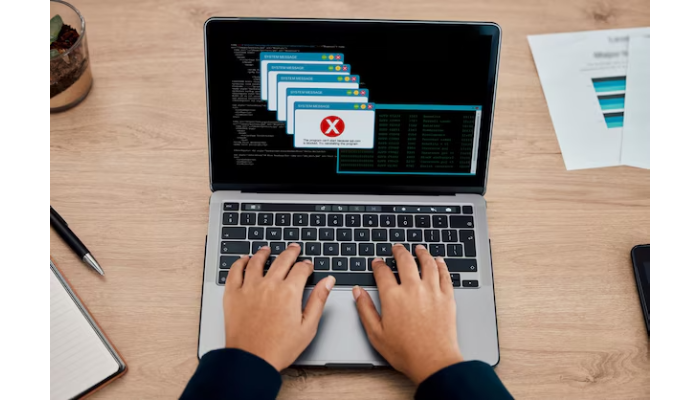
Why Data Breach Fatigue Is Real—and How to Protect Yourself Anyway?
Every few weeks, there is news about another data breach. A big company gets hacked, millions of user accounts are exposed, and people are told to reset their passwords. After hearing this so many times, many of us have stopped paying attention. We scroll past the headlines and think, “It’s just another one.” This feeling is called data breach fatigue. It happens when people become tired of hearing about data leaks and stop taking them seriously. The problem is that ignoring these alerts can make you more vulnerable to identity theft and online fraud.
The Hidden Cost of Ignoring Data Breaches
Ignoring breach alerts might save time, but it can also create bigger problems later. Stolen personal information can be used by criminals months or even years after the breach. They might use your details to open fake bank accounts, take loans, or steal your identity. If you reuse passwords, one leaked password can unlock several of your accounts. This chain reaction can cause financial loss, emotional stress, and privacy issues. That’s why experts often suggest using a data breach monitoring service. These services keep track of where your information appears online and alert you if your data is found in leaked databases. This way, you don’t have to monitor everything yourself.

Why People Feel Tired of Data Breach News?
- It happens too often
Data breaches are now part of our daily news cycle. When the same story repeats, people start feeling numb. It’s like hearing about a storm every day — after a while, it doesn’t sound urgent anymore. - It feels out of our control
Most breaches happen on platforms we use but don’t control — like banks, shopping websites, or social media. Because users can’t stop these attacks themselves, they often feel helpless. - Too many alerts
People get constant emails about suspicious logins, password resets, and security updates. With so many notifications, it’s easy to ignore or delete them all without checking what’s important. - Confusion about what to do
Even when people want to act, they are not always sure how. Should they change all their passwords? Freeze their credit? Cancel cards? This confusion adds to the fatigue and leads to inaction.
How Data Breach Monitoring Services Can Help?
A data breach monitoring service works quietly in the background. It scans the web, including hidden or dark web sources, to check if your personal data — like email addresses, passwords, or credit card details — has been exposed.
Here’s how such a service can protect you:
- Early detection: It alerts you as soon as your data appears in a new leak, giving you time to act before anyone misuses it.
- Less stress: Instead of worrying about every breach in the news, you get specific alerts that actually matter to you.
- Simple actions: These services often guide you on what steps to take next, like changing passwords or enabling extra security.
- Peace of mind: You can focus on your work and life without constantly checking if your accounts are at risk.
Simple Steps to Protect Yourself
Even if you’re tired of data breach news, there are easy ways to stay safe online. You don’t need to do everything at once — just start with a few small habits.
- Use unique passwords for every account
Avoid using the same password across multiple sites. A password manager can help you remember them easily. - Turn on two-factor authentication
This adds an extra step when logging in, like a code sent to your phone. It makes your accounts harder to hack. - Update your devices regularly
Software updates often include security fixes. Keeping your phone and computer updated reduces your risk. - Be careful with links and emails
Scammers often send fake emails that look real. Don’t click on links or download attachments unless you’re sure they’re safe. - Check your data exposure regularly
You can use free tools or a data breach monitoring service to see if your information has been leaked. Acting early can prevent bigger issues later.
Why Awareness Still Matters?
It’s easy to feel like one person can’t do much against big cyberattacks, but awareness still makes a difference. When you stay informed and take small steps, you lower your personal risk. Organizations are improving their security too, but they can’t protect every individual action. The more alert you are, the harder it becomes for attackers to misuse your data. Remember, fatigue is natural — but so is caution. It’s okay to tune out the noise, as long as you don’t ignore your own safety.
Staying Safe Without Feeling Overwhelmed
The goal isn’t to live in fear of data breaches. The goal is to build habits that keep you safe with minimal effort. Think of it like wearing a seatbelt — once it becomes a routine, you don’t have to think about it every time. Using a data breach monitoring service, turning on security features, and keeping your accounts organized can all help you stay calm and protected. You don’t have to read every breach headline — just make sure your personal data is being looked after.
Conclusion
Data breach fatigue is real, and it’s understandable. We’re surrounded by constant alerts and headlines that make it hard to care anymore. But staying aware doesn’t mean living in worry. With the help of smart habits and reliable tools like a data breach monitoring service, you can protect your information without feeling stressed or overwhelmed.


